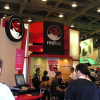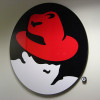NO DUH: COMMERCIAL LINUX DISTRIBUTORS SHOULD ADOPT DEBIAN
Posted at February 23, 2001 01:01 PM Pacific
CORPORATE IT is plagued by a type of
obsessive-compulsive disorder known as DUH -- Dementia
Upgradia Habitua. It manifests itself through the
irrational assumption that the only way a company can
maintain a competitive edge in productivity is to
upgrade everything. Because hardware and software are
continually in a state of change, DUH compels
corporate IT to remain in a continual state of upgrade.
DUH may afflict anyone from the lowliest grunt to the
most senior management. Regardless of where it
afflicts your organization, I've come to the sorry
conclusion that DUH is almost always incurable. The
philosophy "if it ain't broke don't fix it" may make
perfect sense to most people, but few IT departments
are allowed to live by it even if they want to.
I pondered this DUH problem as I wrote last week's
column, in which I pleaded the case for all Linux
distributors to standardize on the same base Linux
distribution. This week, I urge all commercial Linux
distributors to adopt Debian GNU/Linux as the standard
base distribution specifically because of the way it
addresses the DUH phenomenon.
Debian is not a cure for DUH. But it almost completely
eliminates the consequences -- the cost and difficulty
of upgrading -- at least as far as operating systems
go.
Debian allows you to satisfy your DUH compulsions
easily and for free. To upgrade a Debian system, you
simply type the command apt-get update, followed by
apt-get dist-upgrade. This tells Debian to find the
latest packages on the Internet, resolve their
dependencies, then download, install, and configure
the packages on your machine.
Depending on how you configure your system, you can
upgrade your Debian GNU/Linux to the latest current
version, the latest build of the next version, or even
to the unstable development version. Or you can limit
your automatic upgrades to include only security fixes
and then be more selective about upgrading to new
builds or versions.
The good news is that customers can never be left
stranded when they choose a Debian-based distribution.
I installed the Debian-based Storm Linux 2000 to get
Debian on my system. When Stormix filed for bankruptcy
and disconnected their upgrade servers, I pointed my
system to the standard Debian servers and continued to
upgrade my software without so much as a hiccup.
The bad news is that Stormix's use of Debian could be
at least one reason why it filed for bankruptcy.
Consider the business implications of selling a
distribution on Debian: The distributor is adopting a
system that is designed to make it nearly impossible
to sell its customers any upgrades, thus cutting off a
primary source of revenue.
But as counterintuitive to business as it may be, Linux
distributors would be wise to consider this approach.
The apt-get upgrade system is precisely what customers
need. If commercial distributors don't adopt Debian as
a base distribution or at least supply something
competitive with Debian's upgrade system, I predict
Debian itself will rear up and bite them in the
bahootie.
And that's just as it should be. Most Linux
distributions today shouldn't exist at all because
they're still competing on the uniqueness of their
version of Linux rather than on the value they add to
a standard base distribution. This approach will
damage the Linux market and drive all but the biggest
Linux distributors into bankruptcy.
Get The Open Source via e-mail
Click The Open Source at
http://www.iwsubscribe.com/newsletters to receive this
column free via e-mail.
Nicholas Petreley is founding editor of LinuxWorld
(http://www.linuxworld.com). Reach him at nicholas@petreley.com.






































































